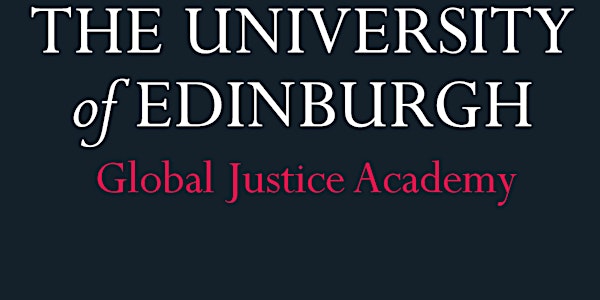
Baldassi and others v. France: impact and perspectives
Hosted by the Global Justice Academy
Date and time
Location
Online
About this event
Organised by
Information about you: how we use it and with whom we share it
The Edinburgh Law School process the personal data of our internal and external stakeholders, in order to deliver and improve the opportunities and services we provide in a personalised manner, to ensure each individual receives relevant information and to ensure we use resources in the most efficient and effective way.
Personal data is processed by the Edinburgh Law School to:
• Keep you up to date with news, events and opportunities at Edinburgh Law School (when applicable).• Provide you with information on any services you have requested and the promotion of benefits and services.• Ensure we only communicate with you about events, opportunities or services of interest to you.
We are using information about you because you have given us your consent, or you are or have been part of the Edinburgh Law School community, and we would like to stay in touch with you and keep you informed of our news.
We will continue to hold the personal data you have provided us as part of Edinburgh Law School; however, you can opt out of the mailing list at any time.
We do not use profiling or automated decision-making processes. A human decision maker will always be involved before any decision is reached in relation to you.
This Privacy Statement is continued at: www.ed.ac.uk/records-management/notice